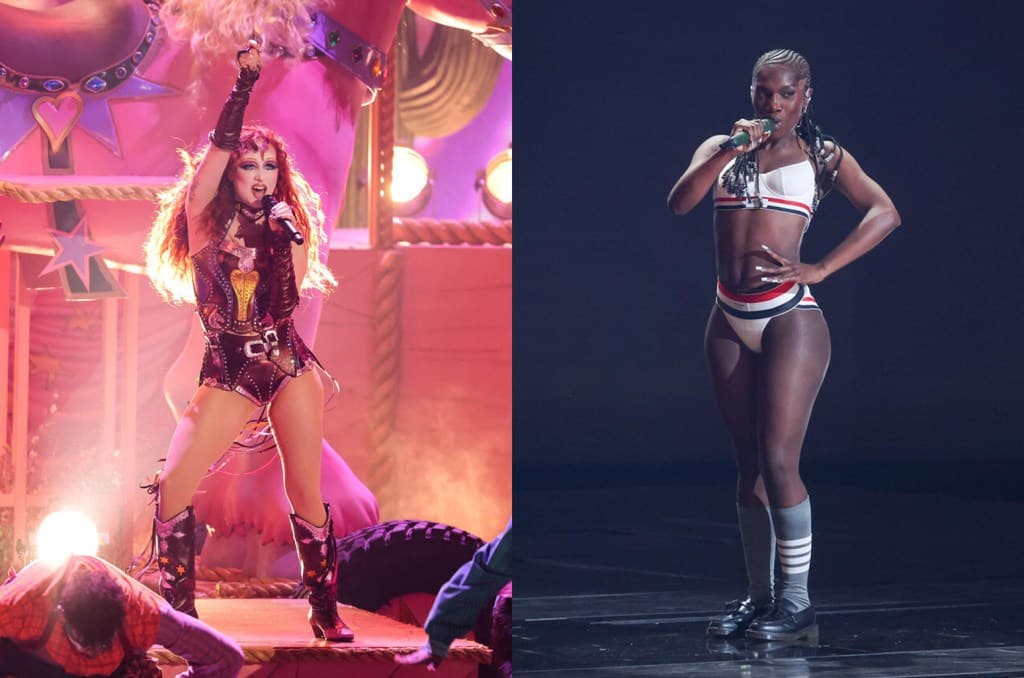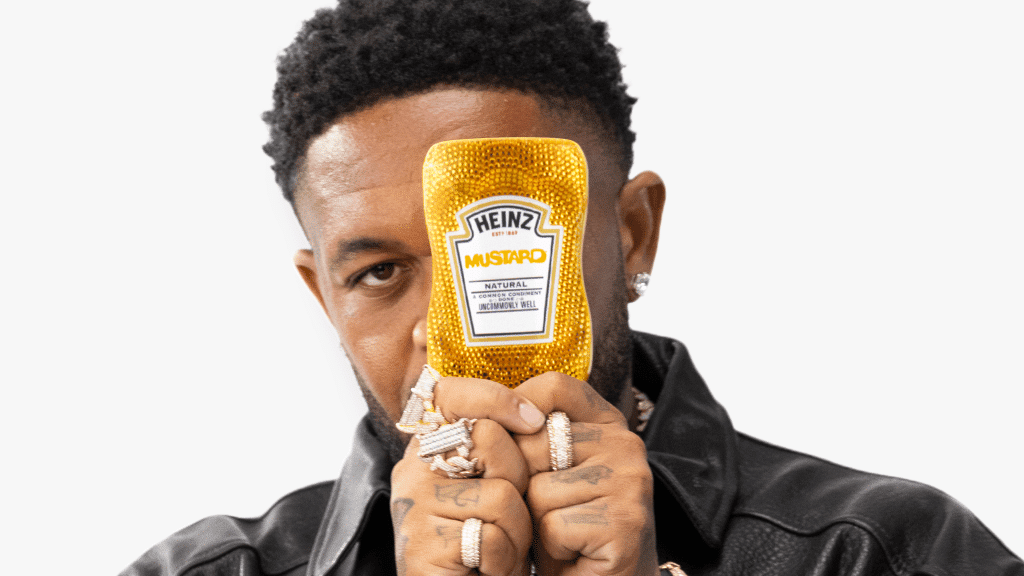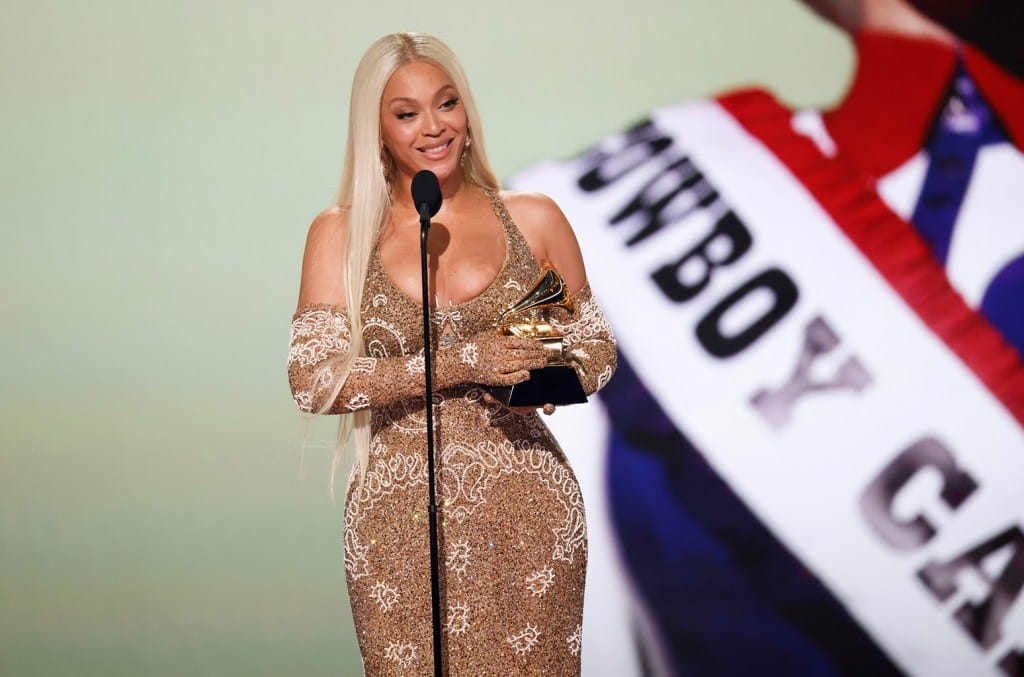LGBTQ+ Artists Raised a Middle Finger to Bigotry & Erasure at the 2025 Grammys: Op-Ed
Written by djfrosty on February 3, 2025

When accepting the award for best pop duo/group performance at the 2025 Grammys on Sunday night (Feb. 2), Lady Gaga — the pioneering pop performer known across the globe for her unflinching advocacy on behalf of the LGBTQ+ community — shared her spotlight with a community in desperate need of affirmation.
“Trans people are not invisible. Trans people deserve love,” she declared. Cameras cut into the audience, showing nods of approval and acknowledgement from music’s biggest names, including Billie Eilish, Beyoncé and Charli XCX. “The queer community deserves to be lifted up. Music is love.”
Trending on Billboard
In almost any other year, Gaga’s declaration would be seen simply as another example of the singer’s ongoing support for the community that helped give her the platform she occupies today. But in 2025, her statement was just one of a chorus of voices — predominantly queer ones — reminding the audience at home that for some communities, existence itself is currently at stake.
The 2025 Grammys received plenty of attention this year for an undeniably queer slate of nominees and performers, and Sunday’s ceremony proved to be one of catharsis and joy for the community. Queer artists stepped up to the plate to combat the onslaught of anti-LGBTQ+ rhetoric and legislation being spread across the United States and the world at large with defiant joy and unparalleled affinity.
That outpouring of love and support could not come at a more crucial moment; in the 14 days since he took office for a second term, President Donald Trump has effectively codified his backwards, bigoted views on LGBTQ+ people into a series of regressive executive actions.
He denied the existence of trans, non-binary and intersex people by declaring that the United States government will only recognize two sexes. He revoked federal mandates for workplace protections that prevent marginalized communities — including queer and trans folks — from being discriminated against. He attempted to ban trans people from serving in the U.S. military again. He ordered to end any and all federal funding for gender-affirming care. He targeted trans students and schools that support them. His actions led the Centers for Disease Control and Prevention to temporarily remove online health resources for the LGBTQ+ community. Emboldened right-wing lawmakers around the country have announced their desire to have the Supreme Court reverse their landmark ruling legalizing same-sex marriage.
To put it plainly: The current right-wing political ecosystem, led by Trump’s administration, is attempting to erase the LGBTQ+ community from participation in public life, starting with trans and gender-diverse people.
Before the Grammys began in earnest on Sunday, artists were already calling out the ongoing attacks on trans people. Speaking to GLAAD on the red carpet, soon-to-be best new artist winner Chappell Roan laid out, in no uncertain terms, her support for the trans community.
“It’s brutal right now, but trans people have always existed and they will forever exist, and they will never, no matter what happens, take trans joy away,” the singer said. “That has to be protected more than anything, because I would not be here without trans girls. So, just know that pop music is thinking about you and cares about you, and I’m really trying my best to stand up for you in every way I can.”
Roan doubled down on that support later on in the awards show. Despite her breakout hit “Good Luck, Babe!” being nominated across multiple categories at the ceremony (including record and song of the year), the Midwest Princess instead opted to perform her generational LGBTQ+ anthem “Pink Pony Club.” Surrounded by rodeo clowns, kitschy outfits and a giant rose-colored horse, Roan let the crowd accentuate the point of her song with a loud sing-along at its final chorus. Chappell, and the LGBTQ+ community at large, will “keep on dancing,” come what may.
Roan was just one amongst a crowd of LGBTQ+ stars who dominated the awards on Sunday evening. After becoming the second-ever queer Black woman to take home the best rap album award at the ceremony (Cardi B made history with her win in 2019 for Invasion of Privacy), breakout star Doechii dedicated her win to all the Black girls watching at home, promising them that no president could take their shine from them, even if our current one has his sights set on eliminating DEI programs across the federal government.
“Don’t allow anybody to project any stereotypes on you, that tell you that you can’t be here, that you’re too dark or that you’re not smart enough or that you’re too dramatic or you’re too loud,” she said. “You’re exactly who you need to be to be right where you are.” Earlier in the evening, Doechii made sure to call for the industry to bring “more gay artists” into the fold in the coming years.
In a backstage interview after her three rock category wins, St. Vincent added to the voices calling for greater LGBTQ+ representation across the board. “There have always been queer people in the history of the world, and especially in music,” she told a reporter. “There’s a bunch of queer people being celebrated this year. And that’s great, of course it’s great — empathy and humanity, let’s go.”
That’s not to say that the Grammys had a perfect run in 2025. As in years past, the annual ceremony had a distinct lack of trans artists present amongst the nominees — though writer/producer Ariel Loh, the first openly trans Asian-American woman to win a Grammy (in the Harry Belafonte best song for social change category, for Iman Jordan’s “Deliver”), made sure to use her limited screen time properly, calling on the audience to “protect trans kids.”
Cynics could shrug off the overt queerness of this year’s ceremony as an inconsequential blip in an unprecedentedly dangerous time for the LGBTQ+ community. But data shows that events like the Grammys are more impactful than some critics are willing to admit.
A 2022 study by the Trevor Project showed that nearly 80% of LGBTQ+ youth reported that seeing musicians come out as LGBTQ+ made them feel better about their own identities. Over 70% felt the same way when they saw straight, cisgender celebrities advocate on their behalf. Compare that to the organization’s study from last year showing that 90% of all LGBTQ+ youth surveyed said recent legislative attacks on queer and trans rights had a direct, negative impact on their well-being.
“When LGBTQ+ young people see themselves reflected and celebrated on a global stage like the Grammys, it sends a powerful message that they belong, their experiences matter, and that they can succeed in spaces as their true, authentic selves,” said Kevin Wong, the Trevor Project’s senior vice president of marketing, communications and content, in a statement shared with Billboard. “Queer visibility in the media also plays a key role in reducing stigma and combating stereotypes surrounding LGBTQ+ people. We are a vibrant and creative community, and we deserve to have our voices heard, our accomplishments celebrated, and our existence validated.”
With unequivocal bigotry working its way into mainstream conversations of queerness and transness once again, LGBTQ+ artists made certain on Sunday night that queer and trans kids watching at home knew that what’s happening now is not normal, nor should it be accepted as such. They reminded the audience watching that it is everyone’s responsibility to fight back against the rising tide of transphobia.
And to lawmakers aiming to relegate LGBTQ+ people to the outer margins of society, those same artists offered an explicit message underlined only by their success at the annual ceremony: We’re not going anywhere.

 State Champ Radio
State Champ Radio 





